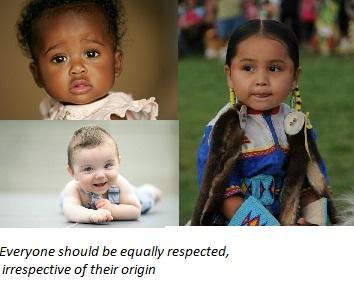Dear “Anonymous” Student,
I was rather sad to see your open letter to Ajahn Giuliano (http://www.opnlttr.com/letter/open-letter-dr-giuliano-giustarini-mahidol...), which I invite readers to see. In that letter, you also offer some advice to me, and as I am the director of the programme that you left with such long-lasting bitterness, I feel the need to respond to your claims. I have done so already, as comments to your own letter; but I realize that comments are often left unread.
Of course I am quite aware of your identity. Out of respect for your wish to remain anonymous, I shall not reveal it. However, it is not honest to post a string of defamatory accusations on the internet without signing them. Quite obviously, had you signed your letter, I could easily provide ample public refutations of your claims – we also have recordings of your classes with Ajahn Giuliano that thoroughly disprove your statements.
Your letter is partly absurd. You joined our PhD programme after it being explained to you, very clearly, that the programme focuses on textual studies; you told us this matched your own interests. When joining, you came to an agreement with your prospective supervisor about the type of thesis you would do: now, you claim that we forced you to change your thesis from a thematic thesis to a textual study midway through your research. Let it be known to readers that students are required to discuss a prospective thesis’ topic with their supervisor before being accepted in our programme. Nobody is accepted without finding a prospective advisor willing to supervise a specific topic.
Another absurdity is the following, which refers to Ajahn Giuliano’s scholarly views:
“But it is not correct nor is alright for him to completely brush off all those conventional interpretation works by the thousands of acclaimed Theravada senior monks from the past two and half thousand years. Do you really think all those native speaking monks and nuns of Pali in ancient Ceylon had been wrong all the whiles in their interpretations?”
Anyone who has read Ajahn Giuliano’s work will be aware that his scholarship is well-informed about the Pāli commentarial traditions, which he takes very seriously (far from “brushing them off”). What you, author of this letter, might mean is therefore beyond my comprehension (and who are the ‘native speaking monks and nuns of Pali in ancient Ceylon’?). Please bring up concrete and precise examples wherein Ajahn Giuliano “brushes off” the interpretations found in the Theravāda commentaries.
Your claims are too vague; either this was your intended strategy, i.e. making vague claims that cannot be directly addressed, or you should write more carefully. Besides, considering that your own knowledge of Pāli is very limited, how can you evaluate whether Ajahn Giuliano’s interpretations are in line with traditional Theravāda? Forgive me for saying so, but it seems inappropriate for you, Pāli beginner, to offer an evaluation of a scholar who can easily read Pāli commentaries and sub-commentaries. From where do you get such a sense of entitlement?
Your letter contains several false claims. These include the claim that Ajahn Giuliano bullied and insulted you, the claim that you entered the programme without being told the type of research you were expected to conduct, the claim that half a dozen students had problems with Giuliano and thus left, etc. They also include the implicit claim that someone ethnically different from you (such as Ajahn Giuliano) could not possibly be a Buddhist practitioner, and a further implicit claim that your own interpretation of Buddhist text is correct and represents the Theravāda tradition, while Ajahn Giuliano’s doesn’t; is it because he is of a different ethnicity than your own?
To put this differently, your letter is defamatory, racist, spiteful and inappropriately patronizing. You portray yourself as a ‘kind and diligent, peace-loving Asian’, while the mention of ethnicity in your self-portrayal clearly betrays your racist prejudice – as it suggests that non-Asians are, supposedly, neither kind, nor diligent, nor peace-loving. Since Ajahn Giuliano is not Asian, you were obviously belittling his birth. Please consider whether looking down on people due to their birth is in any way compatible with the teachings of the Buddha, which you claim not only to follow, but to be defending; and please consider whether there is any kindness in your action.
Let me say this once again: your description of Ajahn Giuliano as a non-practitioner, just by virtue of him not being ethnically Asian, is a thorough insult not only to him but to the Buddhist tradition as a whole. Please check whether the Suttas, the Abhidhamma or the Vinaya tell you to look down on other Buddhist practitioners and belittle them due to the identity of their parents or their place of birth. So who is the bully? Someone who kindly and patiently teaches you Pāli texts, or yourself, who write as if your own teacher’s race marks his inferiority?
The purpose of your letter could be read in this way: you wish to prove to your readers that you are superior to Ajahn Giuliano, that you are a better scholar of Buddhism and a better practitioner (he doesn’t even deserve to be called so), because you come from a superior birth and ethnicity. Did you expect that you would be treated with deference and admiration, by virtue of your birth? If that was your expectation, I am rather glad that you left the programme.
I advise you to reconsider whether a person’s worth should be decided based on their birth. If this is indeed your conviction, perhaps you are in the wrong religion. See the children in the pic above? They are not Asian, and although you may try to dispute this, Ajahn Giuliano too, once, was a small non-Asian child. Don't you think that the Buddha taught that we should have the same kindness towards all children?
Our programme is usually a very peaceful and I would say joyful place. We study in a serene atmosphere and, to the best of my knowledge, those who come to the programme enjoy learning – at the very least, I can say that I do. When we accepted you into the programme, we felt that although your writing was not perfect, you had enthusiasm and potential; and indeed, you looked peaceful and polite. In other words, we perceived something very positive in you and we rejoiced at the thought that you wished to improve and deepen your knowledge. This is why I think of your bitter letter with sadness.
We had invited you to meet and talk with Ajahn Giuliano, together with other people present, so as to express your discomfort and find a friendly solution. But you flatly refused. Do you think that refusing to talk to a person to his face and then slandering him on the internet without even signing your name makes you ‘kind, diligent and peace-loving’? Could you not think of a kinder, more considerate approach?
I will assume that the things that to me look like lies are just misunderstandings, and that your mentions of ethnicity were an oversight rather than the result of racist intent. Let me also assume that you have some love for truth: if such is the case, wouldn’t it be better to clarify one’s possible misunderstandings in person, in a friendly, polite and dignified manner?
Buddhist Studies is a small field, which struggles to survive against the background of a world-wide crisis in the humanities. It makes sense to try to be cordial with one’s teachers and colleagues, and to try to solve frictions through dialogue and friendliness. Does the Buddhist tradition emphasize mettā, or its opposite?
Let me also assume that your letter is no more than a sign of your personal hardship, and that you yourself would prefer a friendlier approach. In that case, I am sure you can find one. You did talk to me in person of your problems, and that was already much better than the ugly things you wrote down in that unfortunate letter; let me just forget them, as the result of some kind of misunderstanding. If you really want to defend the Buddhist tradition, my own unsolicited suggestion would be to start by defending the friendliness in your mind and in your speech, and not let it be defeated by hatred or bitterness: this could start with a public apology to Ajahn Giuliano – at least, you could apologize for your tone and try once again to express your discomfort more politely. Most of the Buddhist practitioners I know are willing to solve things through friendliness and dialogue. You are cordially invited to try the same in this very instance, and having met you, I am confident that you can forget your bitterness and re-establish a friendlier manner of communication. You should be able to express differences in your scholarly opinions without imputing them to your opponent’s lack of practice, since that is far from friendly and is gratuitously patronizing.
I thus conclude by pointing out the two purposes of this open letter: first, I wished to clarify that your claims are false; secondly, I wished to point out that we are always open to a friendly discussion, and that this would seem the more natural and fruitful approach. I doubt that insisting on a confrontational stance will bring you benefit; if you do so, however, it would be more straightforward to actually use your name. On my part, you can see my name below, under my best wishes to you.
śubhāśayena,
Mattia Salvini
Director, International PhD Programme in Buddhist Studies
Department of Humanities, Mahidol University, Salaya, Thailand
















